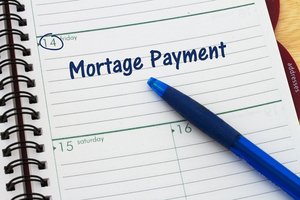In a divorce, one of the most sought-after possessions is the marital home. Divorce is already a stressful process, and having to move out of your house can compound that stress. If you have children, staying in the family home may be in your and their best interests, as it should provide them with a sense of stability during a tumultuous time.
However, taking over a home and all of the costs associated with maintaining it after a divorce is not an easy task. There are essentially three things you can do — refinance, retain, or assume. Refinancing your mortgage loan requires good credit and sufficient income, retaining the home requires trust on your ex-spouse’s behalf, and assuming the mortgage requires an agreement allowing you to do so. Depending on your situation, it may be easier to sell the home and split the proceeds.
Assuming a mortgage is not something many people have experience with or know about, but it may be a good way to hold onto the house. If your current mortgage comes with a good rate and payment terms, then it may be smart financial decision. However, your mortgage agreement also has to allow for it.
Very few loans are able to be assumed after a divorce. While it is difficult to get an assumable loan, if you do happen to have one, it makes the process of keeping your home much easier. It is one less thing you have to worry about during this stressful time.
Why Assume a Loan?
Assuming a loan after a divorce is a much easier process than having to refinance your mortgage. A refinance can take a month or longer to finalize. It often requires an appraisal, which costs money. You can expect the entire process to cost several thousand dollars and you might not even get a better rate than the one you currently have.
By assuming a loan, you eliminate this process. You simply eliminate one borrower from the loan and continue making mortgage payments as usual. If your loan allows for an assumption, it can be done for under $1,000. For VA and FHA loans, the cost is even lower, at around $300-$500. No refinance is needed and you can keep your current terms, which is good if they are favorable.
To assume a loan, however, the lender will need proof that you can pay for the mortgage without help from the other spouse. Therefore, you will still need to document your income and assets. You will need to prove that you can take on this debt on your own.
Why You Should Not Assume a Loan
In some cases, assuming a loan is not the better choice. Sometimes it makes sense to refinance so you can take advantage of lower rates. A lower mortgage payment can free up your income.
A loan assumption is not an easy process. You cannot simply call the lender, sign some paperwork, and move on. Sometimes a loan assumption may require even more documentation than a refinance. You likely dealt with enough paperwork during your divorce and you surely do not want to have to deal with that all over again.
In some cases, assuming a loan can be a much longer process than refinancing. Some loan assumptions take as long as six months to finalize. By then, interest rates may have gone down even more, and you would have lost out.
In many cases, assuming a loan is not even an option. In fact, most mortgages after 2008 do not allow for this. You can find out for sure by looking at the home’s promissory note. Make sure to check before applying or else you will simply be wasting your time. The good news is that VA and FHA loans do allow you to assume a loan. On most loans before 1988, a new borrower can take over the original terms without qualifying. After that time, the loans are still assumable, but the person who wants to take it over has to be qualified first.
Can You Just Retain the Mortgage?
Can you just keep everything as is after a divorce? What is the risk of simply retaining the mortgage? If you are the one keeping the home, there is no risk on your end, as long as you continue paying the mortgage in a timely manner. However, if your ex-spouse is the one keeping the house, you run a lot of risk on your end.
Your name will still be on the mortgage, which means you will still be considered responsible for the payments. This is true even if you are not the one living in the home. Therefore, if your ex-spouse fails to pay the mortgage, you will be on the hook. You will either have to make the payments or see your credit score suffer. This may seem unfair, but that is why retaining the mortgage does not generally work. Plus, having an existing mortgage on your credit report makes it more difficult for you to buy your own house, as it increases your debt to income ratio. Just get out of the mortgage once and for all. Let your ex-spouse deal with the payments while you move on with your life.
Seek Legal Help
There are several things that can happen to a home after a divorce. Is it worth it to stay? Does it make more financial sense to find a more affordable place? Is assuming your mortgage an option?
Palm Beach divorce attorney Scott J. Stadler can answer your questions about property division in a divorce. He is knowledgeable of all areas of family law and can help you get the results you desire. Schedule a consultation today by calling (954) 346-6464.

